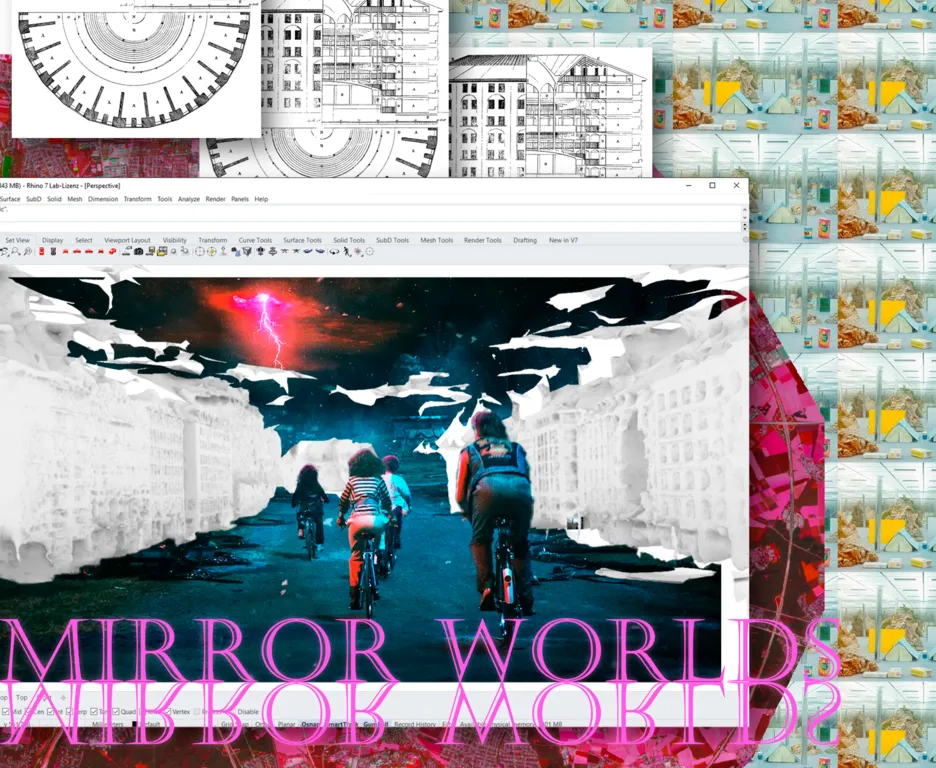Mirror Worlds, Shadowlands and Urban Doppelgängers
Spezialthemen Computational Design II
“Nothing exists or happens in the one Valdrada that the other Valdrada does not repeat, because the city was so constructed that its every point would be reflected in its mirror, and the Valdrada down in the water contains not only all the flutings and juttings of the facades that rise above the lake, but also the rooms’ interiors with ceilings and floors, the perspective of the halls, the mirrors of the wardrobes. […] Even when lovers twist their naked bodies, skin against skin, seeking the position that will give one the most pleasure in the other, even when murderers plunge the knife into the black veins of the neck and more dotted blood pours out the more they press the blade that slips between the tendons, it is not so much their copulating or murdering that matters as the copulating or murdering of the images, limpid and cold in the mirror.”
Italo Calvino “Invisible Cities”, Cities & Eyes 7
Like Calvino’s invisible citizens, we do not inhabit merely one physical city. Digital shadows and virtual twin cities are already part of our lived urban experience. Often presented as apolitical technologies or innovation, these “mirror worlds” also reflect urban imaginaries and gothic aspirations: The haunting doppelgänger, the inescapable matrix, and the all-seeing panopticon... Thus, urban digitization appears less as an issue for technical optimization but rather as a medium for architectural hallucination and speculative design.
“Mirror Worlds, Shadowlands and Urban Doppelgängers” takes place in collaboration with the XR HUB Bavaria within the project XR STAGE (https://xrhub-bavaria.de/topic/xrstage/) - an initiative to promote new media in art and culture. We will build upon the Augmented Reality Platform "AR-VOS" (https://www.ar-vos.com/) by the artists Tamiko Thiel and Peter Graf. Together with Tamiko, Peter, and experts from the XR Hub, we will experiment with XR-media (like Augmented Reality) through hands-on workshops and experimental design approaches. By this, we will explore hybrid experiences of superimposing and intersecting physical and virtual urban worlds.
During the Semester, we will explore urban mirror worlds and digital twin cities through architectural utopias, science fiction, and old-school horror. Together we will conceive and design our own virtual “mirror cabinet” – gathering data, building digital worlds, and scanning spaces. Lastly, we engage with XR-media to materialize these virtual worlds in concrete urban spaces. The resulting projects will be presented and tested at the Festival der Zukunft at the Deutsches Museum in July.
Programming experience is not required for this course, but we expect intrinsic motivation to explore these topics. The hardware necessary for the workshops will be provided.
